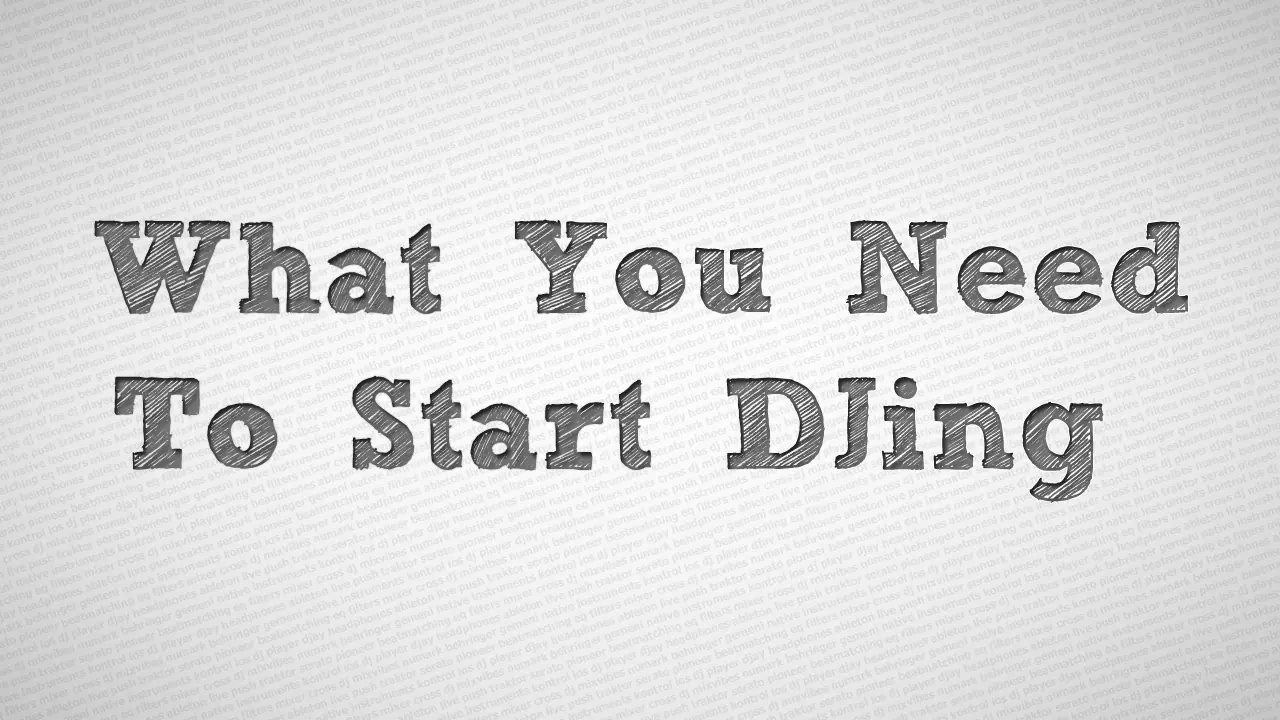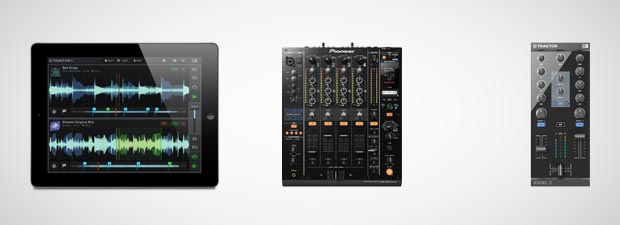
Starting to learn any new skill can be difficult and DJing is no exception. Thankfully there has never been a better time to get started as the prices of equipment, software, and music have gotten cheaper and the number of educational resources have increased. With all of the money that is spent marketing the fancy “professional” DJ gear, it is not shocking to see that many beginners feel the need to spend a lot of money to get started. However, to get started you really only need 4 things, some of which you probably already have.
Music

Without music, you would have nothing to mix. Thankfully, if you are thinking about starting to DJ you probably already have a sizable music collection. When starting out you may feel the need to focus of expand your music collection, but what you really want is a selection of tracks that you know well. Ideally these will be in a similar BPM range and style. By practicing with the same tracks over and over you will learn how tracks are structured and the common elements between them.
When you’re ready to start expanding your music collection you should visit one of the many online digital download stores. My favorite is Beatport. Not only are they the largest online electronic music portal, but they also make it easy to follow your favorite artists and labels. Don’t want to spend a lot of money of tracks? We’ve got some tips for you on how to download free music legally.
Mixer

The one piece of gear that you will most definitely need to acquire is a mixer. DJ mixers allow you to listen to multiple sources of audio (referred to as cueing) before blending them together using EQs and filters. DJ mixers come in 2 different flavors: hardware and software. A hardware mixer, like the Allen & Heath Xone:42, is a physical piece of equipment that can requires additional pieces of gear to mix with. If you decide to buy a hardware mixer, you can watch this video and learn how to set up your DJ mixer. A software mixer is found in applications like Traktor Pro 2 and Cross DJ 2 that run on your computer. You can control the software mixer functions inside a program like Traktor Pro 2 with the physical controls found on a MIDI controller like the Native Instruments Kontrol Z1.
There are many options for if you want to try DJing without investing a lot of money. If you own an iOS device (iPod Touch, iPad, or iPhone), you can pay a few bucks for apps like Traktor DJ ($4.99) and djay2 ($1.99) or download one of the many free apps like DJ Player, or Cross DJ for iPhone on the App Store. If you don’t own an iOS device or would rather use your computer, there are plenty of free software applications to choose from including Cross DJ Free and Mixxx.
Headphones
Headphones are a DJ’s best friend. With a good pair of headphones you can get away with mixing without any speakers. If you’re living in an apartment or college dorm room headphones will let to mix as music as loud as you want without disturbing anyone else. Ideally you want to avoid using the in ear (earbud) style of headphones that you get with an iPod. Preferably you use the more a traditional style that covers your ears as they help block out background noise when mixing. If you’re looking for a cheap pair of headphones for DJing, I’d recommend the Seinnheiser HD202. Just remember that when mixing in headphones it is important to keep the volume at a reasonable level and take the occasional break to protect your hearing.
Patience
As John Digweed says at 22:17 in this video, “when new DJs want to start learning to DJ, patience is the hardest thing that they can learn”. Your early mixes are not going to immediately sound good, but over time they will get better. Even with all of the software features that “make mixing easier”, there are no shortcuts to becoming a good DJ. Your transitions, track selection, and performance will only improve if you push through the tough times. When you reach the other side, you’ll be able to look back and see that all of the time and energy you put in was worth it. Instead of worrying about beatmatching you’ll start thinking about how to incorporate live remixing, effects, or additional decks into your mixes. There will always be ways for you to improve and evolve your DJ mixes.
Looking back, what would you have liked to know when you were starting out?